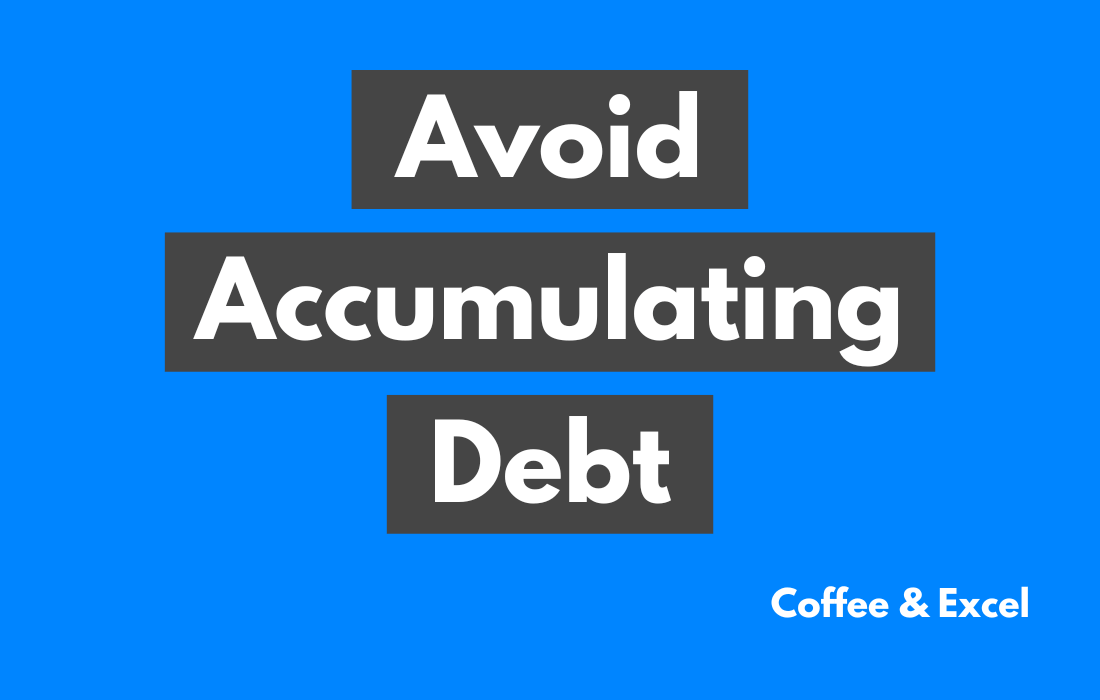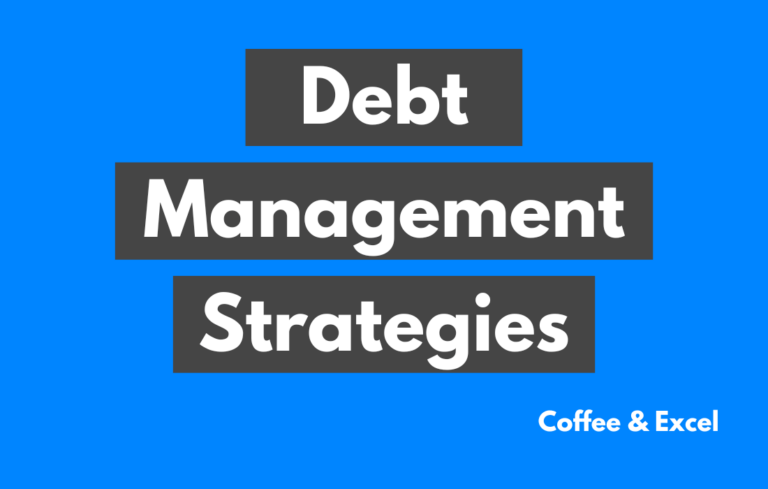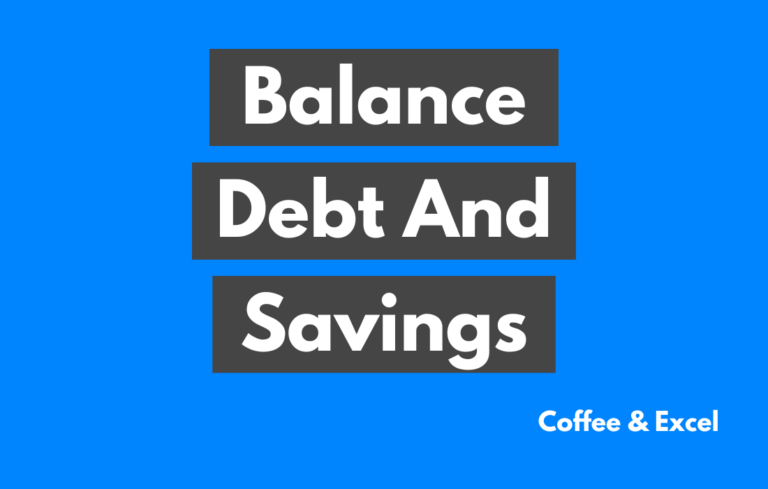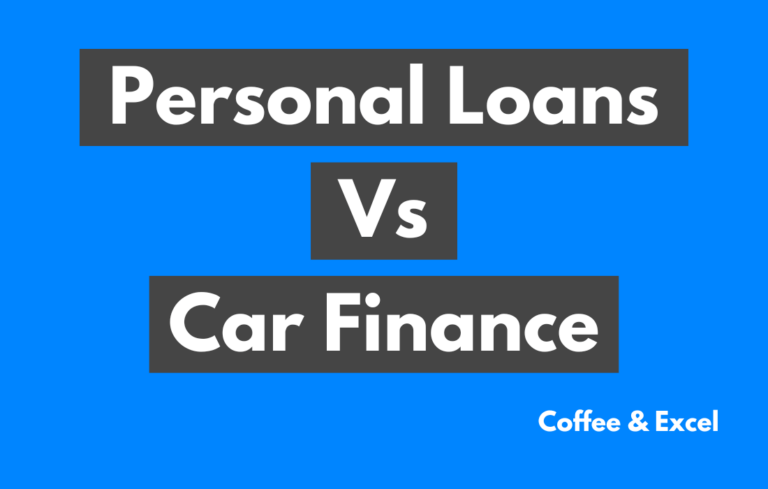10 Proven Strategies to Avoid Accumulating Debt Again

Introduction: The Journey to Financial Freedom
Why It’s Crucial to Avoid Accumulating Debt Again
The first step towards a debt-free life is understanding the importance of not falling back into the same pitfalls. When you avoid accumulating debt, you’re not just saving money but investing in your future. By steering clear of the debt trap, you empower yourself to make choices that benefit your long-term financial health rather than being driven by short-term needs or desires.
The Path Ahead
Navigating the world of personal finance can be daunting, but with the right tools and mindset, staying on track is possible. In this guide, we’ll delve into actionable strategies to help you maintain control over your finances and remain debt-free. So, let’s embark on this journey together, armed with knowledge and a clear vision for a brighter financial future.
Key Takeaways: Strategies to Avoid Accumulating Debt
- Set Clear Financial Goals: Define and prioritize your financial objectives to guide spending and saving decisions.
- Create a Budget and Stick to It: Plan your finances, allocate funds for essentials, and avoid overspending.
- Build an Emergency Fund: Save for unexpected expenses to prevent resorting to high-interest loans during emergencies.
- Monitor Your Spending: Regularly review expenses to ensure they align with your budget and financial goals.
- Avoid Impulse Purchases: Resist the urge to buy on a whim; prioritize needs over wants.
- Use Credit Cards Wisely: Pay off balances in full each month and understand card terms to prevent high-interest debt.
- Educate Yourself on Financial Literacy: Enhance your knowledge to make informed decisions and navigate financial challenges.
- Seek Professional Financial Advice: Consult experts for tailored strategies, especially when navigating complex financial situations.
- Avoid Taking on New Loans: Evaluate the genuine need before borrowing and explore alternatives to debt.
- Regularly Review Your Financial Health: Periodically assess your financial status to ensure alignment with goals and make necessary adjustments.
1. Create a Budget and Stick to It: Your Blueprint to Avoid Accumulating Debt
Budgeting isn’t just about numbers; it’s about gaining clarity. By understanding where your money goes each month, you can make informed decisions that align with your financial goals. Think of a budget as a roadmap, guiding you away from financial pitfalls and helping you avoid accumulating debt.
Crafting Your Personal Budget
To start, list all your sources of income. Next, detail your fixed expenses like rent, utilities, and insurance. Then, allocate funds for variable expenses such as groceries, entertainment, and dining out. Remember, every dollar has a purpose. By assigning roles to each penny, you’re less likely to make impulsive purchases that can lead to debt.
Tools to Keep You on Track
In today’s digital age, there’s no shortage of tools to help you maintain your budget. Apps like Mint, YNAB (You Need A Budget), and PocketGuard can sync with your bank accounts, track your spending, and even send alerts when you’re nearing your budget limits. Leveraging these tools can be a game-changer in your quest to avoid accumulating debt.
Staying Committed to Your Budget
Creating a budget is just the first step. The real challenge lies in sticking to it. Regularly review your spending habits, adjust for unexpected expenses, and celebrate small victories. By staying committed, you not only safeguard your finances but also avoid accumulating debt in the long run.
2. Build an Emergency Fund: Your Safety Net to Avoid Accumulating Debt
Why an Emergency Fund Matters
Life is unpredictable. From sudden medical emergencies to unexpected car repairs, unforeseen expenses can arise at any moment. Without a financial safety net, many are tempted to rely on credit cards or loans, inadvertently spiraling back into debt. An emergency fund acts as a buffer, ensuring you can cover these costs without borrowing, helping you consistently avoid accumulating debt.
Setting Your Emergency Fund Goal
So, how much should you aim to save? Financial experts often recommend having three to six months’ worth of living expenses in your emergency fund. However, the exact amount varies based on individual circumstances. Start with a small goal, perhaps $1,000, and gradually increase it as you become more financially stable. Remember, every bit counts, and even a modest fund can make a significant difference in your ability to avoid accumulating debt.
Strategies to Build Your Fund
Building an emergency fund might seem daunting initially, but with a systematic approach, it becomes manageable. Here are some steps to consider:
- Automate Savings: Set up an automatic transfer from your main account to your savings account each month. This ensures you’re consistently setting money aside.
- Cut Unnecessary Expenses: Review your monthly expenses and identify areas where you can cut back. Redirect these savings to your emergency fund.
- Monetize Your Skills: Consider taking up a side gig or freelance work to boost your income. Dedicate a portion or all of this additional income to your fund.
By diligently following these strategies, you’ll not only build a robust emergency fund but also fortify your financial position to avoid accumulating debt in unforeseen situations.
3. Monitor Your Spending: The Watchful Eye to Avoid Accumulating Debt
In the journey of personal finance, awareness is half the battle. By keeping a close watch on where your money goes, you gain invaluable insights into your spending habits. This awareness not only helps you make informed decisions but also steers you clear of financial pitfalls that can lead to debt. After all, when you know better, you do better, especially when aiming to avoid accumulating debt.
Methods to Monitor Your Spending
With the myriad of tools and techniques available today, tracking your expenses has never been easier. Here’s how you can get started:
- Physical Expense Journals: While seemingly old-fashioned, many find solace in penning down their expenses. This tactile method can make you more conscious of every purchase.
- Digital Expense Trackers: Apps like Expensify, Spendee, and Wallet offer intuitive interfaces to log and categorize your expenses. They provide visual insights, helping you spot trends and areas of concern.
- Bank and Credit Card Statements: Regularly reviewing your bank and credit card statements can give you a comprehensive view of your spending. Most banks also categorize your expenses, making it easier to identify patterns.
Adjusting Your Spending Habits
As you monitor your expenses, you’ll inevitably spot areas where you can cut back. Perhaps you’re dining out too often, or those online shopping sprees are adding up. By making small, conscious adjustments, you can free up funds for savings, investments, or other financial goals. More importantly, by being proactive in managing your finances, you fortify your position to avoid accumulating debt.
The Bigger Picture
Monitoring your spending isn’t just about penny-pinching. It’s about understanding the bigger financial picture and making choices that align with your long-term goals. By staying vigilant and making informed decisions, you not only ensure financial stability but also avoid accumulating debt in the long run.
4. Avoid Impulse Purchases: The Key Discipline to Avoid Accumulating Debt
The Allure of Impulse Buying
We’ve all been there: a flash sale notification, an enticing store display, or a limited-time offer that seems too good to pass up. Impulse purchases might bring momentary joy, but they often lead to buyer’s remorse and, worse, can chip away at our financial stability. In the long run, these unplanned expenditures can become significant roadblocks for those striving to avoid accumulating debt.
Recognizing the Triggers
To combat impulse buying, it’s crucial to recognize what triggers it. Perhaps it’s emotional shopping after a tough day, or maybe it’s the thrill of snagging a deal. By identifying these triggers, you can develop strategies to counteract them. For instance, if online sales are your weakness, consider unsubscribing from promotional emails or setting a cooling-off period before making a purchase.
Strategies to Curb Impulse Spending
- Make a List Before Shopping: Whether you’re heading to the grocery store or shopping for clothes, always have a list. Stick to it diligently, and you’ll be less likely to make unplanned purchases.
- Limit Exposure: Reduce the time you spend browsing online stores or wandering through shopping malls. The less you expose yourself to temptation, the easier it becomes to avoid accumulating debt.
- Use the 24-Hour Rule: If you come across a non-essential item you want to buy, wait 24 hours before making the decision. This pause allows you to assess if it’s genuinely a need or just a fleeting desire.
The Financial Freedom of Discipline
Avoiding impulse purchases isn’t about depriving yourself; it’s about making conscious choices that align with your financial goals. Every time you resist the urge to splurge, you’re taking a step towards a more secure financial future. By practicing discipline and making informed decisions, you not only save money but also strengthen your resolve to avoid accumulating debt.
5. Use Credit Cards Wisely: Swipe Smartly to Avoid Accumulating Debt
The Double-Edged Sword of Credit Cards
When used responsibly, credit cards can offer numerous benefits, from reward points to cashback offers. However, they can also be a slippery slope to mounting debt if not managed with care. The convenience of swiping can sometimes overshadow the reality of the bills that follow. For those committed to a debt-free journey, understanding how to use credit cards wisely is paramount to avoid accumulating debt.
The Golden Rule: Pay in Full
One of the most effective strategies to avoid accumulating debt with credit cards is to pay off the full balance every month. Doing so prevents interest charges and keeps your credit score in good standing. Remember, merely paying the minimum amount can lead to significant interest over time, turning a small purchase into a costly expense.
Limiting Your Credit Exposure
It’s tempting to have multiple credit cards, especially with the myriad of sign-up bonuses and offers. However, juggling numerous cards can make it challenging to track spending and can increase the risk of overspending. Consider using one or two primary cards that align with your spending habits and offer the best rewards.
Understanding the Fine Print
Credit cards come with a host of terms and conditions, from interest rates to late payment fees. Familiarize yourself with these details to avoid unexpected charges. For instance, cash advances might seem convenient but often come with higher interest rates and fees.
The Bigger Picture: Responsible Credit Use
Credit cards are tools, and like any tool, their value depends on how you use them. By being mindful of your spending, paying balances in full, and understanding the nuances of your card, you can reap the benefits without the drawbacks. In the grand scheme of personal finance, smart credit card use can be a powerful ally to avoid accumulating debt.
6. Educate Yourself on Financial Literacy: Knowledge as a Shield to Avoid Accumulating Debt
In the vast landscape of personal finance, knowledge truly is power. Understanding the intricacies of money management, investments, and savings can transform how you approach your finances. More than just numbers and charts, financial literacy equips you with the tools to make informed decisions, ensuring you avoid accumulating debt and build a secure financial future.
Starting with the Basics
Before diving deep, it’s essential to grasp the foundational concepts. Topics like budgeting, interest rates, and the difference between needs and wants lay the groundwork for more advanced financial topics. Thankfully, there are countless resources available, from books to online courses, that cater to beginners.
Exploring Advanced Topics
Once you’re comfortable with the basics, delve into more complex areas like investments, taxes, and retirement planning. While these topics might seem daunting initially, breaking them down step by step makes them more digestible. As you expand your knowledge, you’ll be better positioned to make choices that avoid accumulating debt and optimize your financial growth.
Continuous Learning and Adaptation
The world of finance is ever-evolving. New investment opportunities arise, tax laws change and economic conditions fluctuate. Staying updated and adapting to these changes is crucial. Regularly attending seminars, reading financial news, or joining finance-focused communities can keep you in the loop and ensure you’re always a step ahead in your quest to avoid accumulating debt.
The Lifelong Journey of Financial Education
Financial literacy isn’t a one-time achievement; it’s a lifelong journey. By continuously seeking knowledge and applying what you learn, you not only safeguard your finances but also empower yourself to make choices that resonate with your financial goals and aspirations.
6. Seek Professional Financial Advice: Guided Steps to Avoid Accumulating Debt
The Value of Expert Guidance
While self-education in personal finance is invaluable, there are times when seeking the expertise of a professional can make a world of difference. Financial advisors bring a wealth of experience and can offer tailored advice, ensuring you make decisions that align with your goals and help you avoid accumulating debt.
When to Consider Professional Advice
- Major Life Events: Whether you’re getting married, expecting a child, or considering retirement, significant life changes often come with financial implications. An advisor can guide you through these transitions, ensuring you’re well-prepared.
- Investment Decisions: If you’re new to investing or looking to diversify your portfolio, professional guidance can be invaluable. They can help you understand risks, returns, and the best investment avenues for your situation.
- Debt Management: If you’re struggling with debt or looking for strategies to avoid accumulating debt, a financial counselor can offer actionable steps and solutions tailored to your circumstances.
Finding the Right Advisor
Not all financial advisors are created equal. Finding someone who understands your goals, offers transparent communication, and has a proven track record is essential. Here are some steps to consider:
- Research and Referrals: Start by asking friends or family for recommendations. Online reviews and testimonials can also offer insights.
- Check Qualifications: Ensure the advisor has relevant certifications and is registered with appropriate regulatory bodies.
- Discuss Fees: Understand how the advisor is compensated. Whether it’s a flat fee, commission-based, or a mix, transparency is key.
The Long-Term Benefits of Professional Guidance
Engaging with a financial advisor isn’t just about immediate concerns; it’s about setting the trajectory for your financial future. With their expertise, you can navigate complex financial landscapes, make informed decisions, and, most importantly, avoid accumulating debt as you work towards your financial aspirations.
8. Set Clear Financial Goals: Charting Your Path to Avoid Accumulating Debt
The Importance of Direction in Finance
Imagine embarking on a journey without a clear destination in mind. You might enjoy the ride for a while, but eventually, you’d crave direction and purpose. The same principle applies to personal finance. Without clear financial goals, it’s easy to drift aimlessly, making it challenging to avoid accumulating debt and achieve financial prosperity.
Crafting Your Financial Vision
Setting financial goals starts with introspection. Ask yourself:
- Short-Term Goals: What do you hope to achieve in the next year? This could be saving for a vacation, paying off a specific debt, or building an emergency fund.
- Medium-Term Goals: Where do you see your finances in the next 3-5 years? Perhaps you’re aiming for a down payment on a house or planning a significant career move.
- Long-Term Goals: Think about your financial landscape 10 years or more into the future. Retirement planning, children’s education, or achieving financial independence might be on the horizon.
Breaking Down the Journey
Once you’ve outlined your goals, break them down into actionable steps. For instance, if you aim to save $12,000 for a down payment in the next three years, that translates to saving $333 per month. By making your goals tangible and time-bound, you create a roadmap that not only propels you towards your objectives but also helps you avoid accumulating debt along the way.
Regularly Review and Adjust
Life is dynamic, and so are our financial circumstances. Regularly revisiting your goals ensures they remain aligned with your current situation and aspirations. Adjustments might be necessary due to unexpected expenses, income changes, or shift in priorities. Staying flexible and adaptive is key to staying on track and continuing to avoid accumulating debt.
The Power of Purposeful Finance
Clear financial goals act as beacons, guiding you through the complexities of personal finance. With direction, determination, and regular reflection, you can navigate toward a future where you not only achieve your financial dreams but also successfully avoid accumulating debt.
9. Avoid Taking on New Loans: Steering Clear to Avoid Accumulating Debt
The Temptation of Easy Money
In today’s fast-paced world, loans have become more accessible than ever. From instant online approvals to tempting low-interest offers, the allure of quick cash can be hard to resist. However, no matter how attractive, every loan is a liability that needs repayment. And while loans can be beneficial in certain situations, indiscriminate borrowing can jeopardize your financial health and make it challenging to avoid accumulating debt.
Assessing the Real Need
Before considering a loan, it’s crucial to evaluate the genuine need. Ask yourself:
- Is it a Want or a Need? A loan for a medical emergency differs vastly from one taken for a luxury vacation. Always prioritize essential needs over fleeting desires.
- Can it Wait? If the loan is for a non-urgent expense, consider if you can delay the expenditure and save for it instead. This approach not only helps you avoid accumulating debt but also instills financial discipline.
Exploring Alternatives to Borrowing
Often, there are alternative solutions that can be explored before resorting to loans:
- Savings: It might sound obvious, but tapping into savings, even if it means depleting them temporarily, can be a better option than accruing debt.
- Sell Unused Items: We all have items lying around that we no longer use. Selling these can provide the funds you need without taking on new debt.
- Negotiate Payment Plans: If the expense is unavoidable, like a medical bill, consider negotiating a payment plan rather than taking out a loan.
The Long-Term Implications of New Debt
Every new loan comes with interest; over time, these interest payments can add up, eating into your financial resources. By being cautious and deliberate about taking on new loans, you not only safeguard your present finances but also ensure a future where you can more easily avoid accumulating debt.
The Power of Prudent Choices
Loans, when used judiciously, can be powerful financial tools. However, the key lies in discernment and understanding the long-term implications of debt. By making informed decisions and exploring alternatives, you can confidently navigate the financial landscape and avoid accumulating debt.
10. Regularly Review Your Financial Health: Vigilance to Avoid Accumulating Debt
The Dynamic Nature of Finances
Much like our physical health, our financial health is not static. It evolves, influenced by various factors like changes in income, unexpected expenses, market fluctuations, and personal life events. Just as we go for regular health check-ups, it’s imperative to assess our financial well-being periodically. This proactive approach not only helps in making informed decisions but also plays a pivotal role in helping us avoid accumulating debt.
Setting Up Financial Checkpoints
Establish regular financial review checkpoints to ensure you’re on the right track. These could be:
- Monthly Reviews: Examine your spending patterns, check if you’re sticking to your budget, and adjust for any unforeseen expenses.
- Quarterly Deep Dives: Every three months, delve deeper. Assess your investments, review interest rates on loans, and evaluate your savings progress.
- Annual Financial Overviews: At the end of the year, take a holistic look. Reflect on your financial goals, achievements, and areas that need attention.
Tools to Aid Your Review
In today’s digital era, numerous tools can simplify your financial review process:
- Budgeting Apps: Platforms like YNAB or Mint provide comprehensive insights into your spending and saving habits.
- Investment Trackers: Tools like Personal Capital can give you a snapshot of your investment portfolio’s performance.
- Credit Reports: Regularly checking your credit report can help you spot discrepancies and understand your credit health, crucial in your journey to avoid accumulating debt.
The Benefits of Regular Financial Reviews
By consistently monitoring your financial health, you:
- Stay aware of your financial position.
- Can make timely adjustments to your financial strategies.
- Ensure you’re progressing towards your financial goals.
- Bolster your efforts to avoid accumulating debt.
The Proactive Approach to Financial Well-being
In the realm of personal finance, what you don’t know can hurt you. Regular reviews illuminate the path, ensuring you’re not only aware of potential pitfalls but also equipped to navigate them. By staying vigilant and informed, you fortify your financial foundation and enhance your ability to avoid accumulating debt.
In Conclusion: The Path to Financial Empowerment
Navigating the intricate world of personal finance might seem daunting, but with the right strategies and a proactive approach, achieving financial stability becomes an attainable goal. Remember, the journey to financial freedom isn’t just about wealth accumulation; it’s about making informed decisions that align with your long-term aspirations. By consistently applying the principles outlined in this guide, you not only pave the way for a prosperous future but also ensure you avoid accumulating debt. Embrace these practices, stay informed, and take charge of your financial destiny, always keeping the mantra to avoid accumulating debt at the forefront of your financial endeavors.
Frequently Asked Questions (FAQs)
1. How can setting clear financial goals help me avoid debt?
Setting clear financial goals provides direction to your spending and saving habits. By knowing what you’re working towards, you can allocate funds appropriately, prioritize expenses, and avoid unnecessary spending that could lead to debt.
2. Why is budgeting important in debt prevention?
Creating a budget and sticking to it ensures you live within your means. By planning your finances and allocating funds for essentials, you can prevent overspending and unplanned debt.
3. How does an emergency fund relate to debt avoidance?
An emergency fund acts as a financial safety net. By saving for unexpected expenses, you can avoid resorting to high-interest loans or credit cards during emergencies, thus preventing further debt.
4. Why should I monitor my spending?
Regularly reviewing your expenses ensures they align with your budget and financial goals. Monitoring helps identify areas of overspending and allows timely adjustments to prevent debt accumulation.
5. How do impulse purchases impact debt?
Impulse purchases can lead to unplanned debt, especially if done frequently or without budget considerations. Resisting such purchases and prioritizing needs over wants helps in debt prevention.
6. What’s the best way to use credit cards without accumulating debt?
Using credit cards wisely involves paying off the full balance each month to avoid interest and understanding the card’s terms. This prevents high-interest debt and keeps your credit score healthy.
7. Why is financial literacy crucial for debt management?
Financial literacy equips you with the knowledge to make informed decisions. Understanding concepts like interest rates and investments helps navigate financial challenges and avoid pitfalls leading to debt.
8. When should I seek professional financial advice?
Seeking professional advice is beneficial when navigating complex financial situations, making significant investment decisions, or when you need tailored strategies to manage or avoid debt.
9. Are all loans bad for my financial health?
Not all loans are detrimental, but it’s essential to evaluate the genuine need before borrowing. Always explore alternatives to debt and ensure you understand the terms and interest rates associated with any loan.
10. How often should I review my financial health?
Regularly reviewing your financial health ensures alignment with your goals. Periodic assessments, whether monthly, quarterly, or annually, allow for necessary adjustments and ensure you’re on track to avoid accumulating debt.




